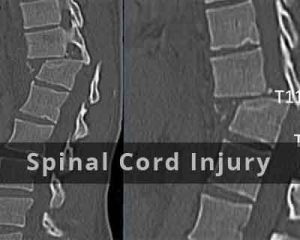- Home
- Editorial
- News
- Practice Guidelines
- Anesthesiology Guidelines
- Cancer Guidelines
- Cardiac Sciences Guidelines
- Critical Care Guidelines
- Dentistry Guidelines
- Dermatology Guidelines
- Diabetes and Endo Guidelines
- Diagnostics Guidelines
- ENT Guidelines
- Featured Practice Guidelines
- Gastroenterology Guidelines
- Geriatrics Guidelines
- Medicine Guidelines
- Nephrology Guidelines
- Neurosciences Guidelines
- Obs and Gynae Guidelines
- Ophthalmology Guidelines
- Orthopaedics Guidelines
- Paediatrics Guidelines
- Psychiatry Guidelines
- Pulmonology Guidelines
- Radiology Guidelines
- Surgery Guidelines
- Urology Guidelines
Transplant Drug May Provide Benefits after Spinal Cord Injury

New research in mice indicates that a drug commonly used to suppress the immune system in recipients of organ transplants may also reduce tissue damage and neuropathic pain after spinal cord injury. The findings are published in the Journal of Orthopaedic Research.
Rapamycin, which is an inhibitor of the mammalian target of rapamycin (mTOR) signaling pathway, has a variety of cellular functions and is known to possess both immuno suppressant and anti-tumor properties. In their previous work, investigators at the Tohoku University Graduate School of Medicine in Japan found that rapamycin treatment can reduce nerve damage and locomotor impairment after spinal cord injury. In this latest study, the team examined whether rapamycin also reduces neuropathic pain, a state of chronic pain resulting from injury to the nervous system.
Using a mouse model of thoracic spinal cord contusion injury, the researchers divided the mice into rapamycin-treated and control groups. Rapamycin treatment four hours after spinal cord injury significantly improved locomotor function and reduced mechanical and thermal hypersensitivity in the hindpaws. Close examination of the mechanisms involved revealed that treatment decreased the activity of various pathways involved in pain.
If the findings hold true in humans, rapamycin could provide considerable benefits to spinal cord injury patients, up to 80 percent of whom experience clinically significant pain that is described as burning, stabbing, and electric shock-like. "Further studies to clarify the impact and full effects of mTOR signaling are needed in order to support the clinical use of mTOR inhibitors in patients with spinal cord injury," the authors wrote.

Disclaimer: This site is primarily intended for healthcare professionals. Any content/information on this website does not replace the advice of medical and/or health professionals and should not be construed as medical/diagnostic advice/endorsement or prescription. Use of this site is subject to our terms of use, privacy policy, advertisement policy. © 2020 Minerva Medical Treatment Pvt Ltd